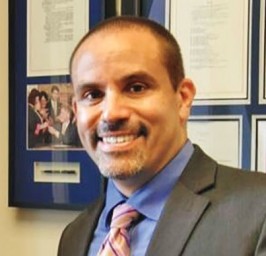HIV-Positive Advocate Reminds Americans About the Dangers of Imported Drugs
HIV-Positive Advocate Reminds Americans About The Dangers Of Imported Drugs

Brandon Macsata, courtesy POZ Magazine
This editorial by Brandon Macsata was published in The Times of Northwest Indiana on March 6, 2019. Macsata is an HIV-positive advocate with many roles, one of which is CEO of the ADAP Advocacy Association.
GUEST COMMENTARY: Imported Medication Might Be Fake
Sens. Chuck Grassley, R-Iowa, and Amy Klobuchar, D-Minn., recently introduced a bill that would permit Americans to import pharmaceuticals from Canada. The two lawmakers believe their bill will reduce drug costs. But at what cost?
The bill would instead expose patients to potentially dangerous counterfeit drugs. Lawmakers would be wise to vote against it.
Americans currently have the safest pharmaceutical supply chain in the world. In large part, that's thanks to the Food and Drug Administration, which strictly supervises the manufacturing and transport of medicines. About 60 percent of our drugs are manufactured at high-tech, ultra-safe facilities right here in the United States. The remainder are made in foreign factories but shipped into the United States through trusted vendors, who never allow the medicines to leave their control.
Grassley and Klobuchar's bill would allow people to purchase drugs that didn't go through this tightly controlled supply chain. That's worrisome. No matter its rigorous safety precautions at home, the FDA can't vouch for the safety and efficacy of foreign-made and supervised drugs. That’s a high price to pay for cheaper drugs.
This is particularly concerning when it comes to drugs coming in from Canadian pharmacies, which often resell drugs imported from India, Turkey and other countries with subpar safety standards. In fact, one FDA investigation found that 85 percent of packages imported to the United States from online Canadian pharmacies contained potentially counterfeit drugs. One in 10 drugs from low and middle-income countries is fake or substandard, according to the World Health Organization. Some are laced with deadly ingredients, like boric acid and fentanyl.
I've experienced firsthand the dangers of foreign drug imports. I was diagnosed with HIV just shy of my 30th birthday. That day, I found out I was destined to undergo antiretroviral therapy for the rest of my life.
But when my out-of-pocket costs hit $1,300 in just my second month of treatment, I started looking for a cheaper option. I began ordering my medicine from an online pharmacy in Canada.
It never crossed my mind that I might have been taking counterfeit medicine, or that the medicines meant to control my HIV could be compromising my immune system. So when my doctor found out, she told me to stop immediately. She warned me that online pharmacies often sell counterfeit drugs.
Government officials have long opposed importation policies for the same reason.
Former FBI Director Louis J. Freeh warns that "importation proposals would do nothing but shift the costs and burden to law enforcement and open up the U.S. drug supply to adulterated and counterfeit drugs."
Former FDA associate commissioner Peter Pitts, meanwhile, opposes the Grassley-Klobuchar proposal for the same reason. He adds that the bill "could endanger American lives by opening the floodgates to harmful counterfeit drugs."
Four other past FDA commissioners penned a letter to Congress explaining that importation would "harm patients" and "compromise" the nation's "carefully constructed system."
And former HHS Secretary Mike Leavitt echoed similar concerns, writing that, while in office, it was "impossible… to certify that importation of medicines from unregulated sellers is safe."
They're all right.
For nearly two decades, liberal and conservative officials have warned against the dangers of drug importation. Not a single FDA commissioner or HHS secretary has been able to verify that it's safe. Let's listen to the experts — importation is not a risk worth taking.